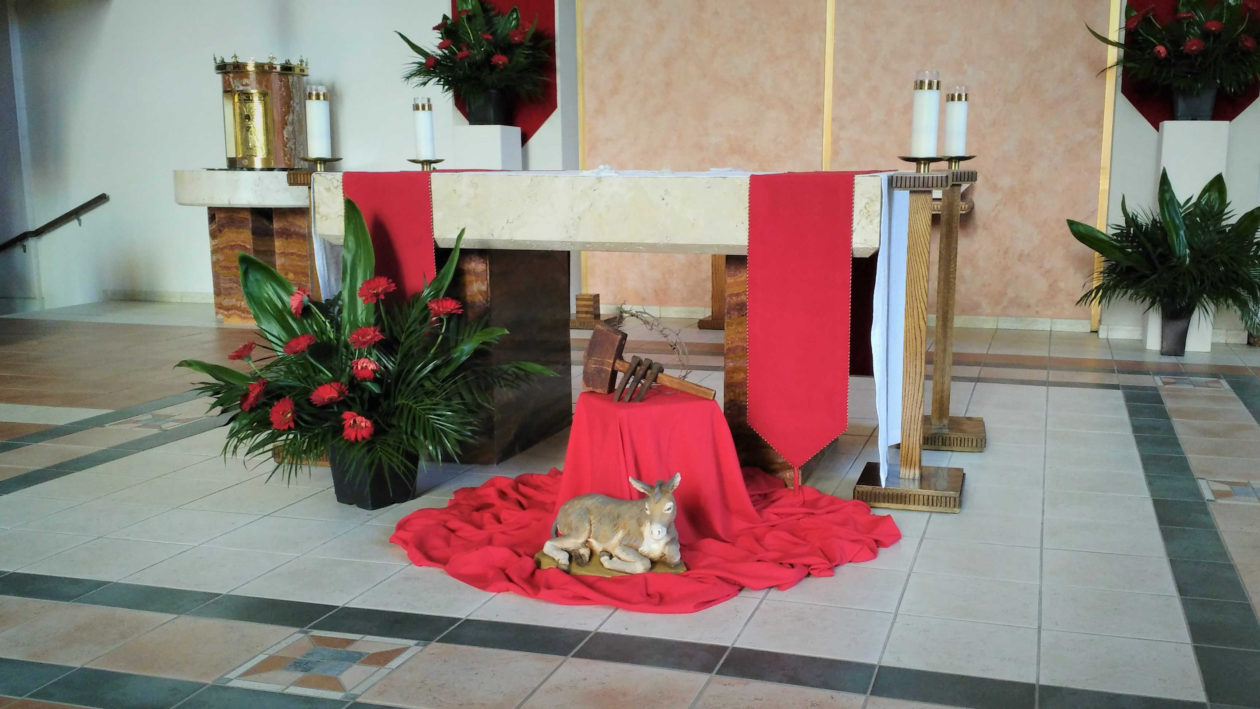
Passion Sunday (Palm Sunday) marks the beginning of the liturgical celebrations of Holy Week. Jesus solemnly enters Jerusalem as a King. People welcomed Him with songs, waving palm branches and spreading their cloaks on His route.
Fast forward a few days. With the same gusto, the same people demand His execution, asking Pilate to crucify Him. It’s a very human thing — influential people, like media, can change our thinking. We accept as true many false, unreal things that carry the weight of public opinion. In Jesus’ time, the Jews compromised and said, “We have no king but Caesar”. Israelites never accepted any kingship other than Yahweh’s. The people are mesmerized to the extent that they are ready to give up their esteemed principles they have held for centuries. They not only denied Jesus as the visible presence of God, but they also claim the responsibility for His death — “Let His death be upon us and our children”.
Matthew constantly reminds us that whatever has happened, has happened according to Scripture. The prophets have written that the Messiah had to undergo suffering — “He was wounded for our transgressions, He was bruised for our iniquity…” (Isaiah 53:5). Later, Peter accents with Isaiah’s prophesy — “He himself bore our sins in His body… by His wounds we have been healed” (1 Peter 2:24).
In spite of all the predictions and prophesies, ‘The servant of Yahweh‘ was strongly resisted. They spat on Him, they beat Him up, tortured and scourge Him. But ‘The Servant‘ was faithful to His God and completed the mission put on His shoulders. As we get further into the week, we are presented with a very weak, extremely humbled, betrayed and crucified Messiah who is an utter failure. The choice is given to us — do we accept the social standards, public opinions or God’s Lamb who is sacrificed for our sins?
Matthew gives us additional information which other evangelists omit. After rolling the stone at the entrance of the tomb, they secure it with chains, sealed it and kept guards to watch over it. Now at this point evil has totally triumphed, truth is silenced and God is put to sleep. The world wants to keep Christ forever in the tomb. “They have mouths, but do not speak; they have eyes, but do not see…” (Psalm 115:5). Truth is put on the side burner. To an honest person, helplessness is a common trend of life. How do we make a breakthrough when we are pushed against a wall, put inside the tomb and sealed?
We need to ask the question like Saint Edith Stein (1891-1942, German Jewish philosopher, scientist and Discalced Carmelite mystic). When faced with terrible evil under Hitler’s reign, Saint Edith asked, “Who will do the penance for the evil that is inflicted on the world [by the Nazis]?” On her way to her Calvary — the gas chamber at Auschwitz — Saint Edith Stein spoke of her suffering as an offering to God for the sake of her country (Germany) and for her people (Jews).
Jesus, the pure image of God, sacrificed Himself as a proxy to humanity. God can see the repentant sinners in Christ and accept Christ’s expiation for sins. When we love God in Christ, Saint Edith Stein believes that we can act as proxy for Christ in His redemptive action.
Fr. Ranjan D’Sa, OCD

